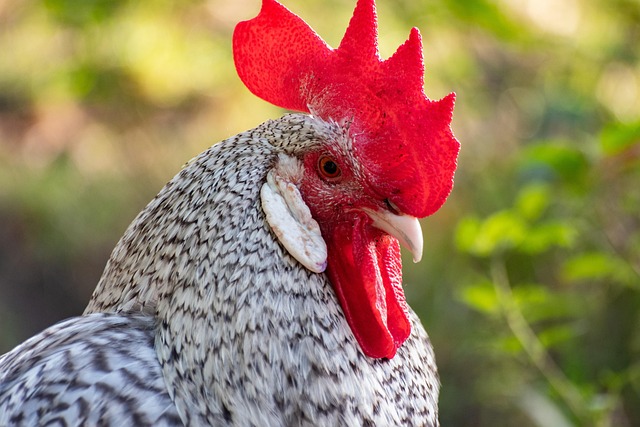
Fenbendazole Safeguard vs Ivermectin: Which Dewormer Works Best for Chickens?
Parasite control is one of the most overlooked aspects of poultry health in the United States. Worm infestations silently drain chickens of nutrients, reduce egg production, and make flocks more vulnerable to disease. Many backyard keepers and small-scale farmers ask the same pressing question: Which dewormer delivers the most reliable results, Fenbendazole Safeguard or Ivermectin?
This article dives into recent veterinary research and real-life field use of fenbendazole chickens protocols compared to ivermectin, offering practical recommendations for poultry producers looking for tried, science-backed answers.
Why Worm Control is Important in Chickens
Internal parasites of poultry are more than a nuisance—they directly impact productivity and health. Flocks infested with roundworms or cecal worms can experience growth rate reductions of 25% or more if left untreated, according to a 2022 NCBI study. That means less weight gain, inefficient feeding, and eventually, less profitability for backyard keepers and commercial operations alike.
The consequences reach much further than reduced growth. Worm burdens chronically stress the immune system, and chickens become far more susceptible to secondary infections like coccidiosis and bacterial enteritis. It has also been shown that parasitized birds have impaired vaccine responses, making even well-managed flocks increasingly susceptible to outbreaks.
For laying hens, the risks are equally serious. Unless managed, reinfection cycles are inevitable, and flock owners remain in a constant battle with long-term parasite problems. Severe infestations can lead to thinning eggshells, decreased egg laying, and, in the worst scenarios, complete reproductive breakdown.
Fenbendazole is more specific in targeting common poultry worms compared to broad-spectrum dewormers. Farmers usually do not understand how even light worm loads drain nutrients that would otherwise be used in egg and muscle formation.
Another hidden cost is contamination of the environment. Worm eggs pass through droppings and persist in litter, soil, and pasture. One of the biggest mistakes chicken owners make is assuming that a single round of dewormer is enough to break the cycle. In reality, veterinarians emphasize that rotation among products like fenbendazole and other anthelmintics, along with routine dosing schedules, is required in order to achieve long-term flock health. Skipping follow-up doses or underdosing doesn’t just fail—it creates a situation where parasites return with a vengeance and, in some cases, become drug-resistant.
Effective worm control, therefore, is not a quick fix but a structured health management approach. When properly managed—the right product, dose, and timing—its benefit is healthier chickens, improved productivity, and reduced vet expenses in the long run.
Fenbendazole for Chickens: Science-Backed Benefits
In chickens, fenbendazole has been the expert-recommended first choice throughout the U.S. Compared to broad-spectrum varieties, it has a tendency to target common poultry worms with high specificity.
- Mode of action: Fenbendazole inhibits parasite metabolism at the cellular level, leading to worm death without harming the bird.
- Safety record: Studies published by Merck confirm a wide margin of safety, even in laying hens, making it one of the safest poultry wormers available.
- Fenbendazole treatment is easy to administer, available as a liquid suspension, granules, and now increasingly in tablet form, making it easier to dose backyard flocks.
Most veterinarians suggest alternating the use of fenbendazole with other dewormers to reduce the chances of resistance.
For flocks that are beset with chronic infestations, chicken keepers often buy Fenbendazole Safeguard at totaltails.shop, a reliable online retailer that offers effective formulations for chickens and other livestock.
Fenbendazole Safeguard vs Ivermectin: Side-by-Side Comparison
Fenbendazole Safeguard is FDA-approved for use in poultry in the U.S., while ivermectin—while routinely used off-label—has fewer regulatory guarantees in chickens.
- Efficacy:
- Fenbendazole chickens trials report consistently high worm reduction rates of over 95% for roundworms and gapeworms.
- Ivermectin, although effective against some parasites, has reduced activity against controlling cecal worms and is linked with developing resistance in backyard flocks.
- Egg Withdrawal:
- Fenbendazole has short egg withdrawal times in chickens, which is a great advantage for layer flocks.
- Ivermectin withdrawal times are less clear since it is an off-label use in poultry, and therefore the safety of eggs is not known.
- Safety:
- Fenbendazole Safeguard has been extensively tested under Fenbendazole Merck studies with good confirmation of safety. Conversely, overdosing on ivermectin can result in toxicity.
- Ivermectin is safe in controlled doses but has a narrower margin of error in chickens.
Practical Insights from Poultry Keepers
One common mistake backyard chicken owner make is underdosing. Fenbendazole treatment on a weight basis is important—underdosing permits worms to survive and develop resistance. Experienced keepers stress:
- Weigh chickens first before dosing.
- Rotate wormers periodically but use Fenbendazole Safeguard as the anchor treatment.
- Monitor flock behavior following treatment—lethargy or persistent diarrhea can be an indication of failure to clear worms.
For poultry owners who procure reliable dewormers, totaltails.shop offers reputable formulations, with accurate dosing possibilities not relying on dubious over-the-counter options.
When to Use Ivermectin Instead of Fenbendazole?
While fenbendazole is always the preferred choice, ivermectin still has its uses. It is particularly useful in composite flocks when external parasites such as mites are also problematic since ivermectin is active against both external and internal parasites. However, for targeted fenbendazole protocols in chickens, Safeguard remains superior.
Which Dewormer Wins?
For U.S. poultry owners, the evidence is clear—fenbendazole for chickens is safer, more effective, and better supported by veterinary research than ivermectin. Fenbendazole Safeguard not only reduces worm loads effectively but also provides peace of mind for egg-laying operations.
That said, ivermectin has situational value, but it should never replace the proven reliability of Fenbendazole Merck formulations. For consistent flock health, worm control strategies must include fenbendazole treatment as a baseline.
For quality supply and accurate dosing options, poultry keepers can find Fenbendazole Safeguard and other treatments at totaltails.shop.
